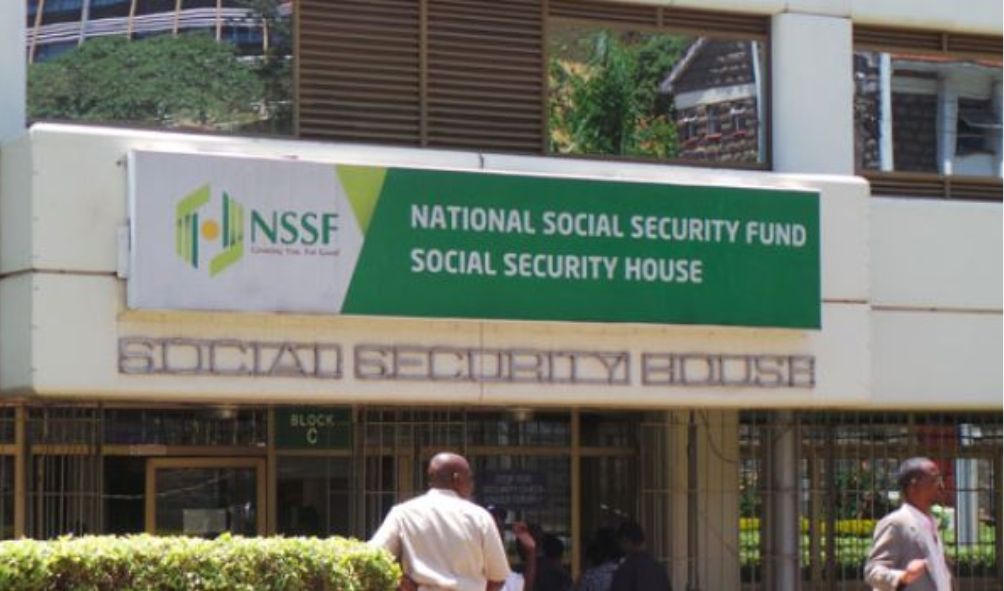Supreme Court overturns Court Of Appeal’s decision on NSSF Act

Supreme Court orders NSSF Act case to be heard again by the Court of Appeal to determine the substantive merits of the ELRC Judgment
Supreme Court orders NSSF Act case to be heard again by the Court of Appeal to determine the substantive merits of the ELRC Judgment.
In a ruling delivered on Wednesday, February 21 by a seven-judge bench led by Chief Justice Martha Koome, the Supreme Court noted that the appellate court was wrong to nullify the Employment and Labour Relations Court (ELRC) decision on the NSFF Act on grounds that it lacked jurisdiction.
The apex court stated that ELRC has jurisdiction to determine the constitutional validity of a statute in matters concerning employment and labor relations.
“Notwithstanding the fact that this dispute did not emanate from an employee-employer relationship to the extent that the NSSF Act 2013, introduces enhanced and mandatory contributory amounts of employees’ earnings, the new law attracts justiciable grievances from certain cadres of employees and involves major players in the employment and labor relations sector, these factors bring the dispute within the purview of the ELRC,” the Supreme court ruled.
“Consequently, the ELRC has jurisdiction to determine the constitutional validity of a statute in matters concerning employment and labor relations under Article 162(2)(a) of the Constitution.”
The apex court ordered the case to be heard afresh by the Court of Appeal to determine the substantive merits of the ELRC Judgment on a priority basis.
As a result, the NSSF Act 2013 case, which has been dragged in court for more than nine years regarding its legality, will continue.
Following the enactment of the Act, five petitions challenging the case were filed; two at the High Court and three at the ELRC.
Thereafter, the High Court transferred the two petitions to the ELRC because the issues related to employment matters and hence fell under its jurisdiction.
Government issues new guidelines on the use of dogs for security
DCI pieces together final last moments of Kelvin Kiptum before his death
High ranking Cuba official visits Kenya over alleged death of two kidnapped doctors
UDA MP involved in a road accident
Governor Natembeya rebukes Speaker Wetangula over ‘Papa Wa Roma’ title
Following a review, ELRC declared the NSSF Act 2013 unconstitutional on four grounds: firstly, that it did not undergo public participation; secondly, that the Act should have been tabled before the Senate before its enactment.
ELRC had ruled that the NSSF Act had implications on County Governments’ finances, and therefore ought to have been tabled before the Senate, and ultimately, the trial court declared the Act unconstitutional.
The judgment delivered by ELRC was appealed at the appellate court which overturned the ruling on grounds that constitutional matters regarding the validity of the NSSF Act were reserved for the High Court.
The Court of Appeal set aside ELRC’s judgment and all consequential orders because the ELRC lacked jurisdiction to determine the constitutional validity of the NSSF Act 2013.
The Appellate Court mentioned that the issue fell within the jurisdiction of the High Court under Article 165(3)(d)(i) of the Constitution.
Also read,
Government report ranks Aisha Jumwa, and Chelugui as the worst CSs
Popular Televangelist Gakuyo arrested at JKIA
Woman, 26 arrested with 9 sacks of bhang worth over Ksh.15 million
New proposal to extend the term length for senators to 10 year
Why I invited governors to executive retreat in Naivasha- Ruto
Follow us




